Home Distilling Laws: Is it Legal to Make Moonshine in your State?

Protect yourself by learning the home distilling laws. Easily learn if it is legal to make moonshine in your state.
Have you considered making moonshine but you are worried about the legalities of it? Many would-be shiners are interested in making their own spirits at home but are unsure if the legal ramifications of this fun new hobby.
Making moonshine is not a new pastime, but it is one riddled with issues with both the law and the tax man. Navigating these laws is not always easy. This is why we have created this simple guide to help you to know the laws in your state as well as the federal laws.
Is Moonshine Legal Now?
Moonshine has long been known as an illicit spirit enjoyed by the few able to either make it or lucky enough to have a friend who is a moonshiner.
However, recently many have been questioning whether moonshine is still illegal. After all, the combination of many hit shows highlighting the process and lifestyle of moonshining as well as the presence of ‘moonshine’ on many supermarket shelves have many scratching their heads.
Why is Moonshine Illegal?
To understand where the legality of moonshine stands currently, you really need to understand its origins. Making moonshine is not illegal, however, you need to complete the appropriate steps, get the appropriate permits, and live in the right part of the country (and in many cases, the world).
You also need to pay the appropriate taxes. Making moonshine is actually a tax infraction.
The Birth of a Nation
While the act of fermenting alcohol was not established along with the United States. It is actually believed that early man evolved to be able to enjoy rotten fruit which in many cases were fermented. Thus we started getting drunk long before the birth of the United States.
While making moonshine was not a new thing, it certainly was a popular pastime in early America, especially in the grain-producing states. The reason for this is because the early settlers quickly discovered that their grain was worth much more distilled in moonshine than sold for feed or food.
In fact, whiskey could actually be used as a form of currency during this time. Of course, this practice was in place before the United States found their independence, an act that would affect moonshiners greatly.
A Whiskey Tax
This happy moonshine making utopia came to a crashing halt thanks to Alexander Hamilton. This founding father helped draft the Constitution, served as the first secretary of the treasury and was the founder and chief architect of the American financial system.
Of course, he also needed to figure out a way to pay for the debts associated with the American Revolution and decided that the days of moonshining had to end and it was time to tax spirits.
Unsurprisingly, the farmers were not on board after just fighting against the British tax tariffs.
This tension exploded with the Whiskey rebellion. This crackdown on moonshining was led by George Washington and resulted in a large loss of life with the resulting Whiskey Rebellion.
And so moonshine is born. Of course, the name moonshine refers to making illicit spirits ‘by the light of the moon’.
Check out What is Moonshine Prohibition?
Is Moonshine Legal in the United States?
First of all, size does not matter. When it comes to stills at least. It is often believed that stills under a certain size are legal but larger stills are not. This is simply not true. The government is more concerned about how you plan to use your still.
However, just because it is legal to own a still does not mean it is legal to distill spirits in your home. In fact, it is illegal to use your still to distill alcohol without first having a ‘distilled spirits permit’ or a ‘federal fuel alcohol permit.’ It does not matter if the spirits you are making are only for personal use and not for sale.
How to Legally Distill Spirits at Home
Fortunately, there are two different avenues available for those who want to distill at home with a permit. One is tailored to those who want to take a commercial route and the other is for those who are not interested in selling spirits.
Federal Distilled Permit
The first option is for those who want to pursue the business of moonshine. If this sounds like you, it is important to obtain a Federal Distilled Spirits Permit.
This permit is not simple to obtain because it is saying you would like to start your own business making spirits. This is the same permit that the big spirit companies like Jack Daniels would have in hand. Therefore, they are very hard to get.
We would only suggest applying for this permit if you actually intent to open a business. Otherwise, they are an expensive and complicated process that is not designed to help a homebrewer avoid any legal ramifications.
Fuel Alcohol Permit
If you are not planning to open a distillery, you can get a fuel alcohol permit. This option is actually free and easy to get. This permit is designed for people who want to make ethanol, but for the purpose of using ethanol for fuel.
It is important to note that obtaining this permit is not a ‘get out of jail free’ card. If you are found to be distilling spirits for the purpose of consumption or distribution, you may still face legal ramifications. This permit will only protect you if you are planning to make ethanol to run a small motor such as your lawnmower.
Apply for your fuel alcohol permit here.
If you are purchasing a distiller without the intention of making alcohol, you do not require a permit.
Federally, it is completely legal to use your still to make perfumes, essential oils, and distilled water.
The options above only need to be considered if you plan on using your still to make spirits or ethanol.
In fact, you are only making moonshine if you are making spirits illicitly. This is because the term moonshine comes from making spirits ‘by the light of the moon’ in order to not get caught.
How can Moonshiners Show Themselves Making Moonshine?
Of course a reality show about making moonshine seems like a recipe for a jail sentence. However, those creating a show know that there are ways to both make moonshine and reduce your risk.
First of all, it is important to know that it is not illegal to own a distiller according to the Federal Government. Many falsely believe that if they get caught with a still in their home they are automatically going to face legal action. The truth is, owning a still of any size is not illegal.
The reason for this is because a distiller is not only able to distill alcohol, but also distill water and make essential oils as well. Owning a still does not mean you make moonshine, it could have a number of implications.
However, many state laws prohibit owning a still. While Federal law will always trump state law, this doesn't mean you won't face fines or possibly jail time just for owning a still. That is why it is so important to know the laws in your state.
Of course, the guys on Moonshiners are not claiming to be making essential oils. However, there are several theories on exactly how they are able to tiptoe around this issue.
One popular theory is that they are actually not making moonshine at all. After all, you can distill water in your still and it will appear the same on film. There is the thought that while they make a mash or ferment it, they are actually distilling water and not moonshine.
While this is possible, it seems less than likely. After all, why go through all the steps of making shine without the reward? It seems more likely there is another explanation.
That brings us to theory number two: the guys on moonshiners have a Federal Distilled Spirits Permit. This permit, while not simple to obtain, is for those who wish to open their own distillery.
It is rumored that the boys actually legally sell the moonshine they make. Funnily enough, since moonshine is actually named for spirits made illicitly, the name moonshiners does not even fit these gentlemen if this is the case.
So while this is the most likely scenario, it is easy to see why it is a closely guarded secret.
What are the Home Distilling Laws in My State?
While it is essential to know what the federal laws are governing moonshine, it is also important to look at your state laws as well. Many states have specific laws around distillation. Unfortunately, Federal law will always trump them.
States That Allow Home Distilling
Alabama: In Alabama there are ‘dry counties’ in which it is illegal to own a still no matter what you plan to do with it. There are also ‘wet’ counties where you can own a still if you do not plan to make spirits with it.
No matter what county you live in, it is illegal to be in possession of moonshine in Alabama.
Alaska: Similarly to Alabama, Alaska has dry and wet counties. However, Alaska’s wet counties actually allow the production of private spirits in small quantities.
- (1) 200 gallons per calendar year if there are two or more adults residing in the household, or
- (2) 100 gallons per calendar year if there is only one adult residing in the household.
However, the sale or transportation of moonshine remains illegal.
Arizona: In Arizona it is legal to own a still if you register it. You can produce spirits for private home use if you have a permit. If you do not register your still it can be seized by the state along with any wash found on the premises.
Arizona also requires you to have a bond which entails keeping detailed records, providing adequate equipment and a separate dwelling in order to produce your shine in.
In Arizona is it legal to give away your moonshine to anyone over 21.
California: In California, you must register your still by contacting the California Department of Alcoholic Beverage Control. The state laws in California are a little muddy, whereas your still can be seized even if there is no moonshine present. This seems to be the case for stills that are not registered with the state.
Colorado: In Colorado there are no laws prohibiting the possession of a still. However manufacturing, transporting or selling moonshine is illegal without the proper permits in place.
Fortunately, if you are caught with moonshine it is considered a misdemeanor with a fine between $250-$1000 and 3-12 months imprisonment.
Maine: Distillery laws are interesting in Maine. They have both a distillery permit and a micro distillery permit.
- A. A holder of a distillery license may distill, rectify, blend and bottle more than 50,000 gallons of spirits per year. [2011, c. 629, §22 (NEW).]
- B. A holder of a small distillery license may distill, rectify, blend and bottle not more than 50,000 gallons of spirits per year.
- (1) The small distillery off-premises license fee is $100.
- (2) Upon application by a holder of a small distillery license whose distillery has produced spirits in an amount that exceeds 50,000 gallons in one year, the bureau may renew that holder's small distillery license for only one additional year.
Massachusetts: In Massachusetts you are able to not only own a still, but also produce spirits for personal use. There doesn’t seem to be a limit on the amount produced by an individual. However, the production or transportation of moonshine for the purposes of selling is illegal.
Missouri: In Missouri you can legally own a still and produce up to 200 liters of moonshine per household (if two or more adults are living in the home) . While the production of moonshine is legal, the sale of such moonshine is not. The fine for selling moonshine is $10,000 dollars for the first offense, $25,000 for the second, and $50,000 for the third offense.
Ohio: In Ohio it is legal to own a still, but only if what you produce has 0.05% alcohol or lower. This means you can make perfume but not moonshine. It is unclear what the laws are surrounding making ethanol for fuel.
Rhode Island: In Rhode Island it is legal to own a still for purposes outside of the manufacturing of spirits.
Check out this link that breaks down the distilling laws by state.
Still Registration and Reporting

The Federal Alcohol and Tobacco Tax and Trade Bureau regulations state that still manufacturers need to keep their customer’s information. This is required as the information could be requested by the Federal Alcohol and Tobacco Tax and Trade Bureau.
Click here to read the actual federal laws on the subject of distillation.
Where in the World is Moonshining Legal?
Fortunately, making moonshine is not illegal all over the world. New Zealand was the first country to make distilling moonshine for personal consumption legal in 1996.
In 1997 Russia reduced the penalty for making moonshine from a criminal offense to a misdemeanor. As of 2002, it is no longer even considered a misdemeanor.
However, it seems the good old United States of America is holding strong onto its moonshining laws. It is important to remember that the prohibition of moonshine is a tax law, which means that making moonshine legal would mean a loss of tax revenue. The U.S. government has an excise tax of $2.14 for each 750-milliliter bottle of 80-proof spirits, compared with 21 cents for a bottle of wine (of 14 percent alcohol or less) and 5 cents for a can of beer.
Check out 7 Things to Look for in a Still
Making moonshine in the United States is tricky. As most states prohibit home moonshining, yet state laws sometimes conflict with federal law.
However, it is important to note federal law trumps state law, and to the feds, distilling at home for personal consumption is illegal, period.



